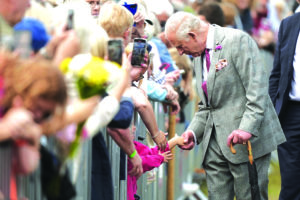Teens use AI for friendship, guidance, distraction
Topeka (US), July 23: Teenagers are increasingly relying on artificial intelligence (AI) tools like ChatGPT, Replika, and Character.AI not just for homework or information, but as sources of advice, emotional support, and even companionship. According to a recent Common Sense Media study, over 70% of teens have interacted with AI companions, and about half use them regularly. These AI platforms are designed to simulate human-like conversations, offering empathy and validation without judgment, which many teens find appealing. Some teens report that chatting with AI can be as satisfying—or even more so—than talking to real friends.
Fifteen-year-old Kayla Chege uses AI for everyday decisions such as back-to-school shopping and party planning, highlighting how AI is becoming a daily part of teens’ lives. Others use AI to navigate social situations, craft messages, or manage personal issues. However, some experts and parents are worried about the risks of teens turning to AI for emotional connection instead of human relationships. For instance, 33% of teens surveyed admitted to discussing serious or personal topics with AI rather than real people.
Psychologists warn that relying heavily on AI could impair the development of critical social skills, such as empathy, perspective-taking, and independent thinking, which are vital during adolescence. Constant validation from AI can create unrealistic expectations and hinder teens’ ability to handle complex social interactions. Additionally, the rapid rise of AI use among youth has outpaced research and regulation, raising concerns about exposure to harmful or inappropriate content, as many AI platforms lack effective age restrictions.
Unlike social media, which satisfies the need to be seen and connected, AI taps into deeper emotional needs for attachment and validation. This new form of digital interaction may contribute to growing issues of loneliness and mental health challenges among youth. Educators and researchers urge parents, schools, and policymakers to understand these evolving dynamics and develop strategies to ensure AI complements rather than replaces real human interaction. The trend signals a profound shift in how adolescents form relationships, make decisions, and seek emotional support in an increasingly digital world. (AP)

Sandringham Flower Show at Sandringham House in
Norfolk, England, on Wednesday. (PTI)



